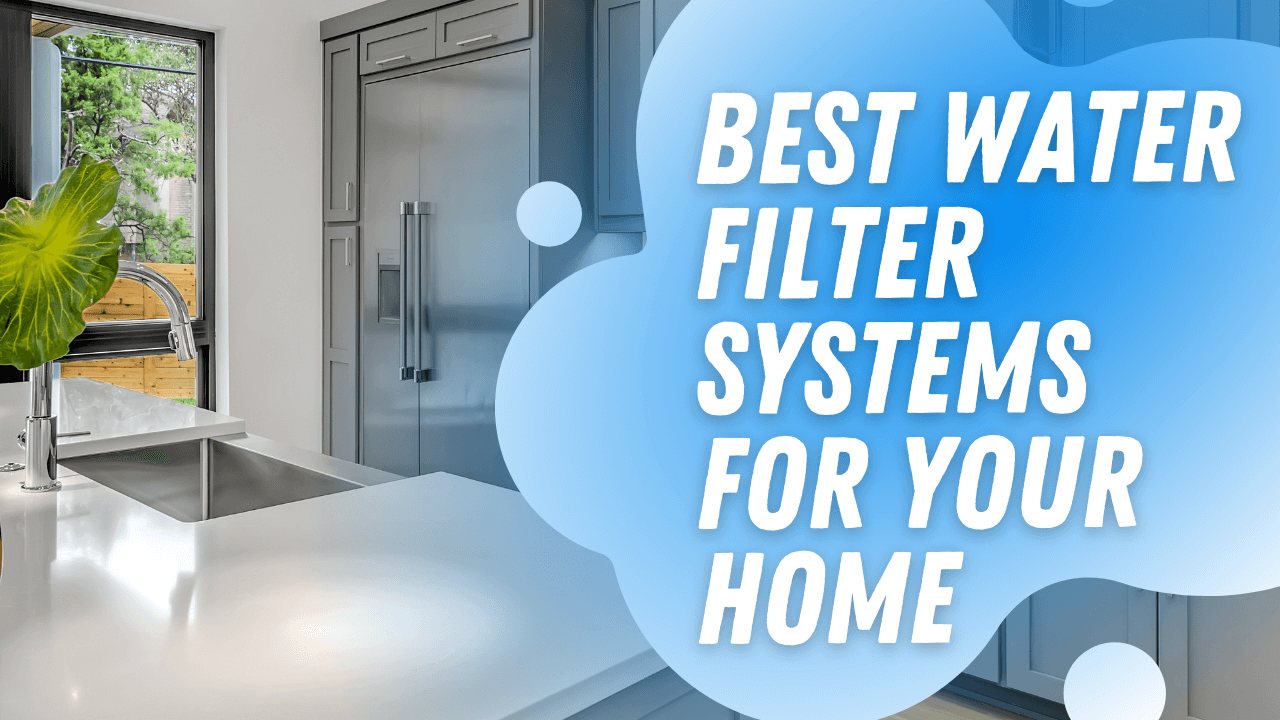The water supply around Australia is like a lucky dip - you never know what you’re going to get!
The local councils disinfect the water supplies to remove the basic contaminants, but there are many chemical additives (and other contaminants) that remain in the water supply and wreak havoc on people’s health.
In this article, you’ll learn exactly what you need to know to take control of your water quality and choose the best water filter systems for your home.
Get To Know Your Water Supply!

You first need to know what you want to remove from your water.
Rainwater comes with the challenges of bacteria, sediment and viruses, which can make you very sick. Rainwater is also, in most cases, acidic and eats out the copper pipes in your home, which can lead to detrimental consequences to the pipes in your home.
City or town water comes with the risk of exposure to herbicides, fungicides, pesticides, pharmaceuticals, industrial chemicals, turbidity and more.
Additionally, the government pumps our water supplies with copious amounts of chlorine, fluoride, and other chemicals to clean it before sending it out to people’s homes.
There isn’t much you can do to control the quality of water coming to your house, but you CAN use a water filter to transform your drinking water into something that tastes and smells clean and fresh.
More importantly, you’re not going to ruin your health by consuming the many contaminants found in our town water supply or the pipes on the way to your place or inside the home.
The best place to start is to get to know your water.
Until you know EXACTLY what lurks in your unfiltered water supply, it will influence your health, and you will call it fate.
What Do You Want To Do About It?

Decide what level of exposure you’re willing to accept, and then choose a water filter that removes the contaminants you no longer want to consume.
For example, do you want fluoride in your water? So many people are concerned about Fluoride In Drinking Water, so that added fluoride is completely banned in Europe.
Fluoride removal is also our most popular range of products.
There are many types of filtration methods, all of which perform different roles.
Types of Water Filtration

1. Granulated Activated Carbon
GAC filters remove chemicals that give off foul odours or tastes like chlorine, herbicides and pesticides. When the water flows through the granulated carbon, the chemicals stick to the carbon-producing better water.
2. Distillation
Distillation removes minerals, microorganisms, and chemicals but not chlorine and many other volatile organic chemicals.
3. Deionization
Deionisation filters purify the water by removing salt and other charged particles.
4. Ion Exchange
Ion exchange water filters are effective at reducing the hardness of water with beads of a polymer resin. They perform well as water softeners or hard water filters.
5. Reverse Osmosis
Reverse Osmosis works by pushing water through a semi-permeable membrane pulling out ions and other unwanted contaminants, including fluoride.
Reverse Osmosis removes more contaminants than any other filtration method.
To learn all you need to know in the Buyer's Guide to Reverse Osmosis, click here.
6. Mechanical
Mechanical filters are good at removing sediment and cysts.
Mechanical filtration is what gets rid of the dirt. If your water supply contains a lot of dirt, sand or dust, then a sediment filter is the first step.
8. Carbon Block
Carbon block filters are made up of powdered carbon, which removes contaminants through a process called adsorption, where impurities stick to the carbon block as the water passes through the cartridge.
9. Aragon
The Aragon Cartridge is a world-class water filtration product, combining four different treatment processes.
It uses both ion exchange and adsorption methods to remove dissolved chemicals from drinking water such as aluminium and heavy metals like lead - but it gets rid of some harmful radioactive compounds too!
Popular Water Filter System Options For Most Homes

There are no water filters that remove ALL contaminants, so be sure to choose the right water filter for your water supply.
Benchtop Gravity systems are compact, portable and incredibly easy to use and set up.
Benchtop systems are the most common choice for many Australian families because they offer diverse cartridge options. In addition, they are simple to install and create excellent quality water at an affordable price.
Reverse Osmosis systems remove the most contaminants out of these 3 Benchtop options but at a considerable cost to you, the consumer, and the environment. It filters the slowest and will give you water with the least amount of contaminants.
Reverse Osmosis systems are more expensive and come with a lot of water wastage. It also has a max output of 200ml per minute, so speed could be an issue for bigger families unless a sizeable holding container is used with the unit to store the water.
Home Water Filter System Checklist:
We recommend treating all of the water that flows into the home because if it harms the body, it will likely damage the home.
A Whole House Water Filter will take care of the bulk, but we highly recommend utilising a Drinking Water Filter and a Filter for your shower or bath too.
If you have any questions or need help selecting the right products for your home, please contact us.








